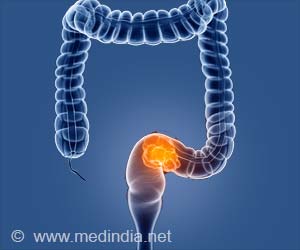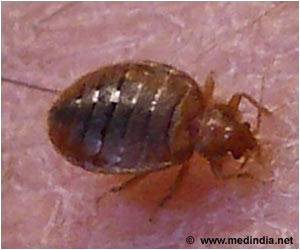Previous cancer is associated with a persistent rise in the risk of cardiovascular disease
- Survivors of breast and blood cancer may be at an increased risk of acquiring cardiovascular disease
- A recent study suggests that survivors of blood cancer had the highest risk and developed changes in the size and function of their hearts
- Breast cancer survivors were also more likely to die from cardiovascular disease
The findings indicate that people who have suffered from breast or blood cancers may be at the greatest risk.
The researchers also note that shared vascular risk factors as well as the treatments and biological processes related to cancer itself are all associated with an increased risk of incident cardiovascular disease among cancer survivors.
First Year After Diagnosis is the Most Crucial
Most of the evidence suggests that the highest risk of cardiovascular complications arises in the first year after diagnosis. Few studies have looked at potential long-term risks or included cardiovascular imaging to pinpoint cardiovascular system damage that hasn't yet resulted in symptoms.To fill the gaps, the researchers assessed the cardiovascular health of 18,714 UK Biobank participants with a previous diagnosis of common cancer—lung (313), breast (9,531), prostate (3,291), blood (2,230), uterine (937), or bowel (2,412)—and compared them with the same number of UK Biobank participants without any history of cancer, and matched for age and traditional vascular risk factors.
The average age of all the participants was 62 years old and about two-thirds were women. Using linked health records, their cardiovascular health was monitored for almost 12 years.
Factors Linked to Declining Heart Health
Those with a prior cancer diagnosis frequently had risk factors for worse cardiovascular health, such as smoking, high blood pressure, and excess weight.Almost 1 in 10 of those with lung, uterine, and bowel cancers were suffering from diabetes. 18% of the participants also had a pre-existing cardiovascular disease.
Link Between Surviving Cancer and Heart Diseases
During the monitoring period, over a third of cancer survivors experienced one of the following: ischemic heart disease; stroke; abnormal heart rhythm (atrial fibrillation); heart failure; impaired electrical signaling or mechanical heart problems (non-ischemic cardiomyopathies); blood clots in the veins, arteries, or lungs; inflammation of the lining around the heart (pericarditis).The three cancers with the highest rates of new cardiovascular disease were lung (49.5%), blood (48.5%), and prostate (41%) cancers. New cases of ischemic heart disease, atrial fibrillation, and heart failure were the most common types of cardiovascular diseases across all cancers.
The monitoring period showed that 19% of the cancer survivors died, compared with 8.5% of those in the comparison group. Cardiovascular disease was the primary cause of death in 1 in 12 of the cancer survivors who died.
MRI scan results for 1,354 of the study participants also suggest that the size and function of the heart among the cancer survivors had significantly declined, irrespective of underlying vascular risk factors.
Blood Cancer Survivors at Increased Risk of Cardiovascular Disease
Compared to people without cancer, blood cancer survivors had significantly higher odds of acquiring all forms of cardiovascular diseases. Clinically significant changes in the size and function of their hearts were also evident on MRI scans.The researchers postulate that the reason could be that patients with blood cancers are exposed to chemotherapies known to be harmful to heart tissue, as well as radiotherapy that targets the chest wall overlying the heart.
Breast Cancer Survivors at Heightened Risk of Dying from Heart Ailments
Likewise, breast cancer survivors had an increased risk of developing—and dying from—heart failure and non-ischemic cardiomyopathies, as well as being diagnosed with pericarditis. Their scans were also more likely to show evidence of functional heart changes."These observations likely reflect cardiotoxicity linked to breast cancer therapies," said the researchers, adding that these people were also 8 times more likely to die of disease associated with high blood pressure.
Limitations of the Observational Study on Cardiovascular Risk in Cancer Survivors
It is important to note that this is an observational study and can't establish a cause. The researchers also acknowledge various limitations to their findings, including small numbers of lung and uterine cancer survivors and no information on cancer grade, stage, or specific treatments.Most of the UK Biobank study participants are also white, so the findings might not apply to people of other ethnic backgrounds.
Nonetheless, they conclude, "Importantly, we demonstrate that past cancer confers an increased risk of cardiovascular events, independent of traditional vascular risk factors and that this risk may extend several years beyond the initial cancer diagnosis."
Their findings show "particular vulnerability of individuals with past breast and hematological cancer, who appeared at greatest risk, both with regards to the risk of incident clinical disease and adverse cardiac remodeling," they add.
In a linked editorial, Professor José Banchs of the University of Colorado School of Medicine, U.S., and Dr. Tara Lech from Beth Israel Lahey Health emphasizes, "The importance of heart disease in patients undergoing cancer care cannot be understated, but also how critical it becomes to prioritize a care continuum after cancer is survived."
"The fantastic progress in the treatment and even cure of malignancies has undoubtedly highlighted the need for post-cancer care like never before," paving the way for more tailored care, they write.
Reference:
- Incident cardiovascular events and imaging phenotypes in UK Biobank participants with past cancer - (https://pubmed.ncbi.nlm.nih.gov/37072241/)
Source-Medindia
















